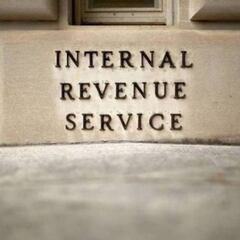Third stimulus check: can I receive it if I live abroad?
US expats living abroad were eligible for the first two stimulus checks and will be for a third direct payment of $1,400 under Joe Biden’s American Rescue Plan.

Last week, the Senate passed President Joe Biden’s $1.9 trillion American Rescue Plan Act, a relief bill which includes direct economic impact payments of $1,400 to all American citizens – even those who might be living and working abroad. The new Covid-19 relief bill, which was signed into law on 11 March, expands eligibility for the checks to mixed-status families, who may have missed out on the first two rounds of stimulus payments. Many non-US citizens who live and work in America but who have a valid Social Security number, nonresident aliens, US citizens who live abroad and residents of a US territories will also be eligible.
Third stimulus check: how many people will receive payment?
How many Americans have claimed unemployment benefits this month?
Who is eligible to receive a stimulus check?
Individuals who have an adjusted gross income (AGI) of less than $75,000 and married couples jointly earning up to $150,000 will be entitled to the full payment ($2,800, plus payments for any dependent). Heads of household with an AGI of less than $112,500 will also be eligible for the full $1,400 per person.
Adult dependents of 17 years of age or older, college students and disabled will be eligible for a stimulus payment - claimed by a family member - for the first time. Individuals or at least one member of the household, for those filing jointly, must have a Social Security number. This includes all US citizens and non-US citizens with a Social Security Number who live and work in America. US citizens who live abroad and residents of any US territories will also be eligible to receive an impact payment. This third stimulus payment will be determined on income earned during 2019 or 2020 - providing a tax return for last year has been filed. Qualifying dependents need to be claimed during that tax year.
#IRS begins delivering 3rd round of Economic Impact Payments. Social Security and other federal beneficiaries will generally receive it the same way as their regular benefits.
— IRSnews (@IRSnews) March 13, 2021
More at https://t.co/SS5tahU8DZ #COVIDreliefIRS pic.twitter.com/Ms5UZj20Qq
US expats living abroad can receive a $1,400 stimulus check
In the previous relief packages, US citizens living outside the country were eligible to receive a stimulus payment, on the condition they met certain requirements. If you filed a tax return in 2018 or 2019, the Internal Revenue Service (IRS) should have already paid your first two payments into your US bank account by direct deposit. If you don’t have a bank account in the US, the IRS would have sent you a check by post – the IRS is unable to transfer money into foreign bank accounts.
The procedure is exactly the same for this third round of stimulus payments. Most US expats will receive their payments automatically, with no action required, via direct deposit paid into their US bank account. Alternatively, you can request to have a paper check mailed to a valid US address. If your payment cannot be delivered to you, it will be returned to the IRS. If you need to update your address, you can do so here. The easiest way for expats to receive their payment is through direct deposit which can be done through the Get My Payment tool - you will be asked to verify your identity by answering a series of security questions.
To everyone out there who’s hurting or struggling to get by: help is here. pic.twitter.com/fkME0yMmBK
— President Biden (@POTUS) March 13, 2021
Eligibility for stimulus checks in US Territories and Freely Associated States
People who live in or were a resident in 2020 of one of the US territories (Puerto Rico, the US Virgin Islands, American Samoa, the Commonwealth of the Northern Mariana Islands or Guam) are also entitle to receive the third economic impact payment. US citizens who are resident in a Freely Associated State (Micronesia, the Republic of the Marshall Islands or the Republic of Palau) may not be entitled to a payment but if you are a resident of a US territory for the tax year 2020 for US territory income tax purposes, you may be eligible for a payment from the US territory tax agency - not from the IRS.
Related stories
The IRS doesn't distribute payments to overseas territories – it is done through local tax authorities based on information provided by the IRS. In order to claim your payment, you must contact your local tax authority.
If you didn’t receive either of the first two stimulus payments you can still claim the money when you file your 1040 or 1040-SR (for senior adults) for the 2020 fiscal year. You’ll need to use the Recovery Rebate Credit on the 2020 tax forms.

